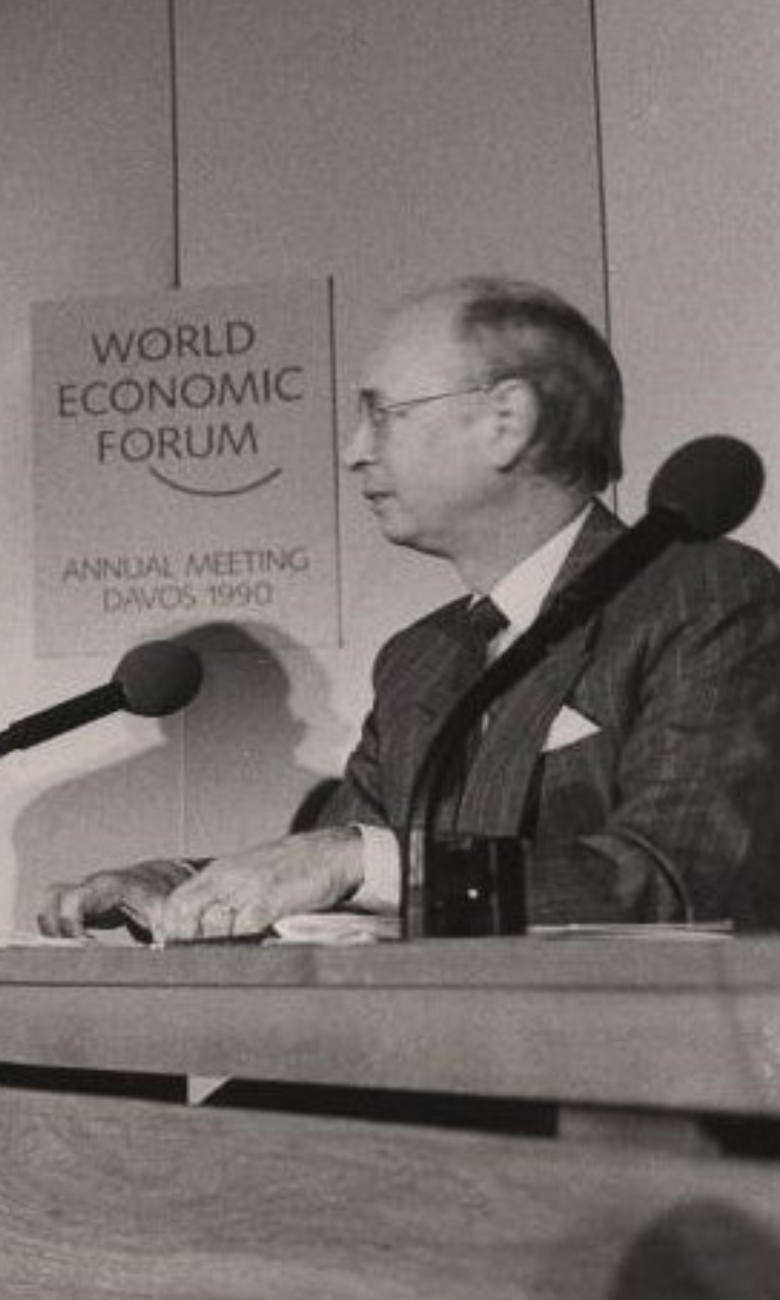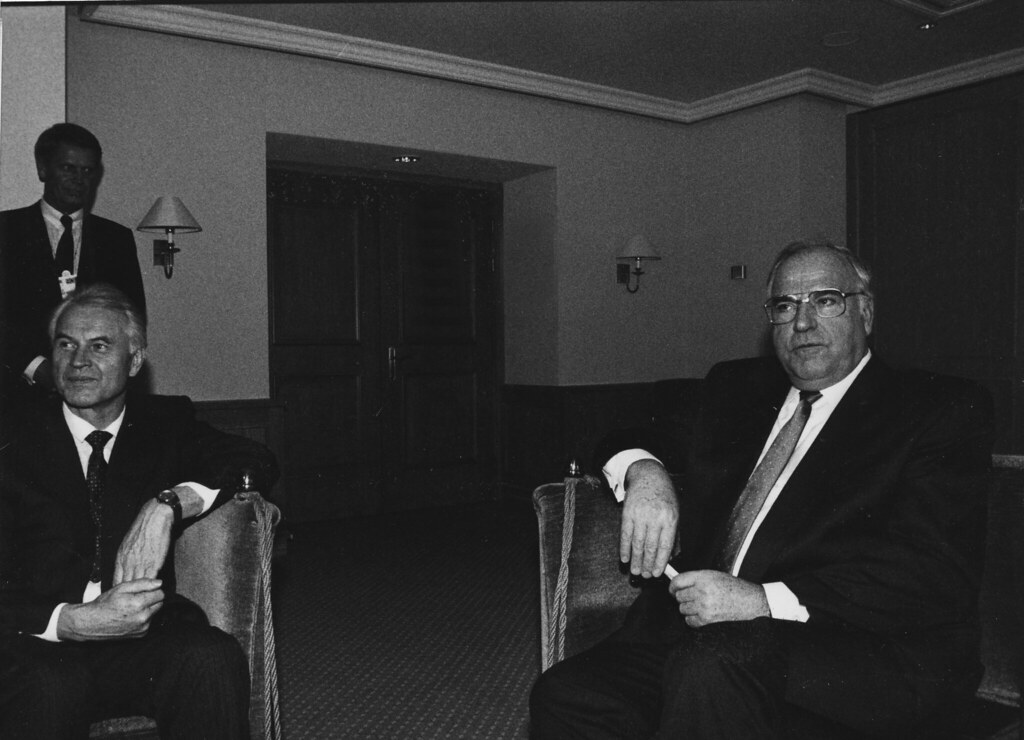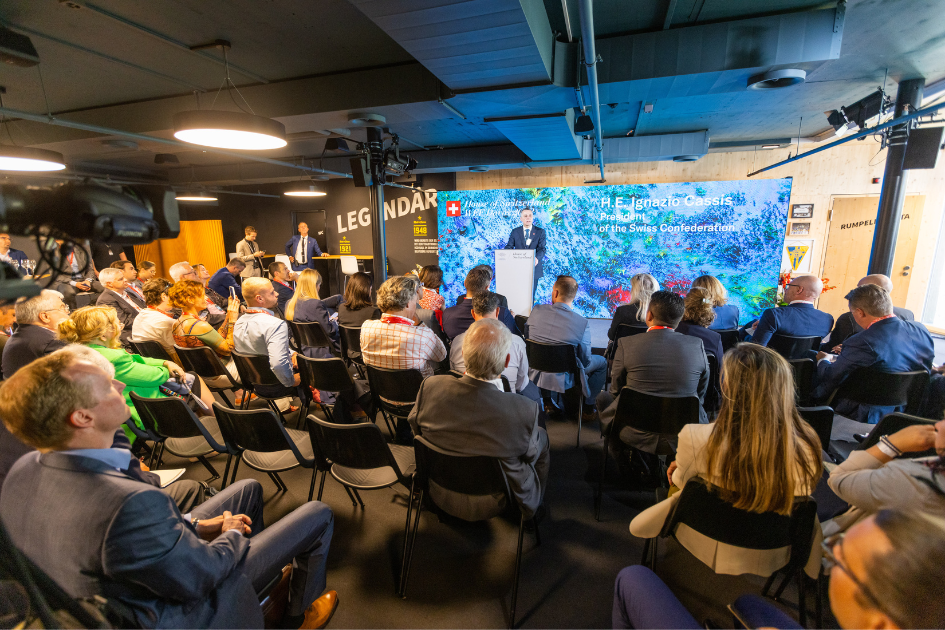The World Economic Forum: A Swiss success story
Established in 1971 as a not-for-profit foundation headquartered in Geneva, the World Economic Forum has evolved into a global platform where leaders from diverse sectors address pressing challenges. In all its activities, the Forum seeks to demonstrate entrepreneurship in the public interest while upholding the highest standards of governance. From facilitating historic agreements to helping to end conflicts, the Forum has had a considerable impact on global and local concerns over the years.
Let's look back at the history of the Forum and discover how Swiss, the Forum is today, and what makes it a distinctive force in shaping the global agenda?

A catalyst for public-private cooperation
Bringing together leaders from the political, business, scientific and social spheres, the Forum was founded by Klaus Schwab, former and honorary professor at the University of Geneva. The Forum embodies a unique institutional culture based on stakeholder theory. This theory argues that an organisation is accountable to all parts of society, bringing together elements from the public and private sectors, international organisations, and academic institutions. The Forum's serves thus as a forward-looking platform for public-private collaboration, enabling business partnerships and political breakthroughs through a global and holistic approach.

Over the years, the Forum has facilitated landmark agreements, such as averting armed conflict between Greece and Turkey in 1988, and helping to end apartheid in South Africa. The Forum’s Annual Meeting also served as a platform for the announcement of the UN Global Compact, an initiative that calls on companies to align their operations with human rights principles. At the Annual Meeting in 1990, a session on the “New Europe” took place, bringing together for the first time the heads of Western and Eastern European countries. The encounter between West German Federal Chancellor Helmut Kohl and the newly elected East German Prime Minister Hans Modrow at the 1990 Annual Meeting in Davos was decisive in determining German reunification.
Switzerland, often praised for its commitment to neutrality and International Geneva with its provision of a diplomatic platform, is an ideal host for the Forum.
Davos: more than Europe’s highest town
Nestled in the Swiss Alps, Davos is not only Europe’s highest city, it has also become synonymous with the Forum's Annual Meeting. Held in Davos since its inception, the Annual Meeting in Davos embodies an attitude of openness and cooperation, encapsulated in the “Davos Manifesto”. Created in 1973 and renewed in 2020, the Manifesto outlines the principles of stakeholder capitalism, in line with the UN Sustainable Development Agenda. The agenda of the Annual Meeting evolves each year, addressing global challenges ranging from climate change to pandemic preparedness and is designed to accelerate progress and address critical issues.
The spirit of Davos
The Annual Meeting embodies the ‘Spirit of Davos’ – an attitude of openness and cooperation at the heart of the Forum's mission. The Annual Meeting brings together diverse voices, including the Forum’s partner businesses, politicians, civil society leaders, activists, artists, and youth representatives. Other participants of the Annual Meeting include members of the communities such as the Global Innovators and Technology Pioneers community, the Community of Global Shapers, the Forum of Young Global Leaders, and the Schwab Foundation for Social Entrepreneurship.

The sessions can be followed online on the Forum’s website and on various social media platforms. Since 2003, the Forum hosts events and discussions that are open to the public, for free, upon registration, at the Open Forum Davos.
From Davos to global impact
The Forum’s activities extend beyond the Annual Meetings in Davos, as evidenced by pivotal events in its history:
- 1998 – The concept of a global institution comprising developed and emerging economies was born in Davos, leading to the establishment of the G20.
- 2000 – The launch of GAVI, the Vaccine Alliance, has saved over 13 million lives, showcasing the Forum's commitment to global health.
- 2024 – National Security Advisors Meeting – The Forum continues to be a platform for high-level discussions on national security in Ukraine, facilitating dialogue among key stakeholders.
The Forum promotes consensus and action on issues such as social inclusion and environmental protection through its Annual Meeting and beyond. It also deepens collaboration around topics such as digitalization, food and water security, sustainable building culture and the changing nature of work. For instance, there's the Reskilling Revolution – an initiative aiming to transform education, skills and learning to prepare 1 billion people for tomorrow’s economy and society. The Refugee Employment Alliance, is accelerating multistakeholder support for the economic integration of refugees globally. Additionally, the Forum spearheads the First Movers Coalition, a global coalition of companies leveraging their purchasing power to decarbonize the world’s heavy-emitting sectors, and it hosts the Centre for the Fourth Industrial Revolution, which helps stakeholders harness the full potential of technological progress for the equitable and human-centred transformation of industries, economies and societies.
How Swiss is the WEF?
The collaboration between Switzerland and the Forum is not merely symbolic; it is deeply rooted in tangible initiatives. In 2015, a Host State Agreement was signed, acknowledging the Forum as an “international institution for public-private cooperation”.

The House of Switzerland, established in 2019, provides a communication and networking platform for official Switzerland and as location for bilateral meetings, thematic events, enhancing collaboration among political, business and scientific stakeholders during the Annual Meetings.

The World Economic Forum is deeply intertwined with the Swiss ethos of neutrality, collaboration, and long-term vision. As it continues to play a pivotal role in shaping the global agenda, the Forum exemplifies how Switzerland contributes to forging a better future for the world, as an innovative and reliable partner that can make an important contribution with its excellence in various fields.




